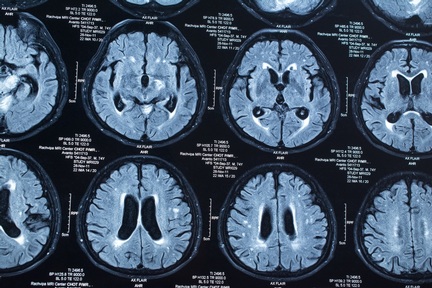Blocking brain inflammation could 'halt' the progression of Alzheimer's disease
A new study has revealed that blocking a receptor in the brain responsible for regulating immune cells, could protect against some of the memory and behaviour changes seen in Alzheimer’s disease.

The research, published in the Journal Brain, adds to existing evidence that inflammation in the brain is involved in the development of the disease, which could be halted by reducing inflammation.
Director of research at Alzheimer’s Society, Dr Doug Brown, said: “We know brain inflammation occurs in Alzheimer’s disease, but researchers are still working out what impact this has on the progression of the disease.
“This study shows that the production of new immune cells in the Alzheimer’s brain contributes to the development of memory impairments - and that by blocking this immune reaction memory loss can be reduced. It’s encouraging to see that these new findings are already being taken forward to see whether they can help in the development of new dementia treatments.”
Researchers at the University of Southampton used post-mortem brain tissue samples to demonstrate that the numbers of an immune cell, called microglia, increase in the brains of people with Alzheimer’s disease relative to healthy brains.
Using mice that develop features of Alzheimer’s disease, researchers blocked the production of microglia in the brain and were able to reduce the development of memory problems. The mice were fed a drug that blocks a receptor known as CSF1R, which is responsible for regulating microglia.
Commenting on the research, Dr Diego Gomez-Nicola, lead author of the study, said: “These findings are as close to evidence as we can get to show that this particular pathway is active in the development of Alzheimer's disease.
“The next step is to work closely with our partners in the industry to find a safe and suitable drug that can be tested to see if it works in humans.”
Alzheimer’s Society research has revealed that 850,000 people in the UK have a form of dementia. In less than ten years a million people are expected to be living with dementia, a figure which is expected to soar to two million by 2051.
Mr Brown added: “With an ageing population and no new dementia drugs in over a decade, the need to find treatments that can slow or stop disease progression is greater than ever.
“Although dementia research is still desperately underfunded, increased commitments from Government and charities are boosting UK research efforts and contributing to faster global progress towards a much needed cure.”
Latest News
 29-Jul-24
Dementia Bus gives carehome.co.uk staff insight into life with dementia
29-Jul-24
Dementia Bus gives carehome.co.uk staff insight into life with dementia
 01-Mar-24
Find out the top care homes in 2024
01-Mar-24
Find out the top care homes in 2024
 21-Mar-23
UK's top care homes in 2023 revealed
21-Mar-23
UK's top care homes in 2023 revealed
 03-Jan-23
carehome.co.uk launches free care helpline
03-Jan-23
carehome.co.uk launches free care helpline
 13-Dec-22
5 mins with Emily Whitehurst, chief operating officer for Constantia Healthcare
13-Dec-22
5 mins with Emily Whitehurst, chief operating officer for Constantia Healthcare